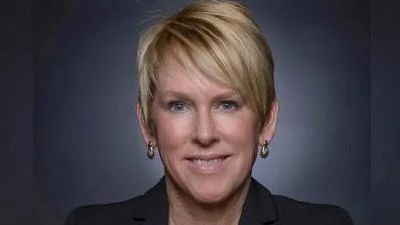Dr. James C. Schmidt Chancellor | Official website
Dr. James C. Schmidt Chancellor | Official website
The University of Wisconsin-Eau Claire, in collaboration with Chicago-based Health Equity Innovation Partners, has announced the creation of the Rural Health Innovation Alliance. This initiative aims to bring together healthcare providers, entrepreneurs, and other partners to improve healthcare delivery in rural areas. The alliance's goals are to enhance access and outcomes while reducing costs.
The announcement was made on May 23 at the Wisconsin Technology Council luncheon held at UW-Eau Claire. Chancellor James Schmidt emphasized that the focus is on creating a "sandbox" model to foster innovation through collaborations among multiple healthcare providers in an open environment where data, technology, and successes are shared.
“In many ways, this is a logical next step of the work on our workforce development grant,” Schmidt said. He referred to the $9.4 million Workforce Innovation Grant received by UW-Eau Claire in 2021 from the Wisconsin Economic Development Corp., aimed at strengthening the workforce to improve health and well-being in rural areas across northwest Wisconsin.
The alliance seeks to make the Chippewa Valley region a hub for testing innovative care models and global technology solutions for rural healthcare delivery. If successful, these models could serve as a national template.
Schmidt described the project as a long-term initiative designed to create innovative delivery models for accessing healthcare. He noted that they support efforts addressing recent hospital closures and aim not to duplicate or impede those efforts but rather build a collaborative environment for testing new ideas and solutions tailored to rural settings' unique social determinants of health.
A key goal of RHIA is discovering new approaches and products to improve access to care for patients in rural areas. Research, discovery, testing, and product improvements will occur within an innovation sandbox framework. Testing, analyzing data, and sharing expertise will be standard practices.
Additionally, this project could spur economic development in the Chippewa Valley. Schmidt stated that RHIA aims to impact workforce development positively while attracting entrepreneurs focused on information technology, artificial intelligence solutions, software testing, clinical trials, and medical device manufacturing.
A significant part of UW-Eau Claire’s mission includes educating and training future healthcare workers. With many students interested in healthcare careers, they will have hands-on opportunities to learn and test emerging solutions aimed at improving life quality in the Chippewa Valley and beyond.
One initial step outlined by RHIA involves creating “microsites” within several communities. These microsites aim to enhance healthcare access for rural patients with services including urgent care, behavioral health, primary care, maternal care, pediatrics, and oncology available both in-person and virtually using cutting-edge technology.
Ultimately, RHIA hopes these solutions can be scaled nationally and globally.





 Alerts Sign-up
Alerts Sign-up